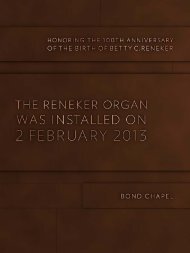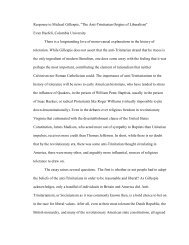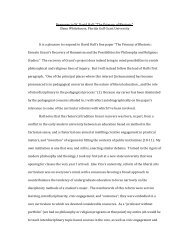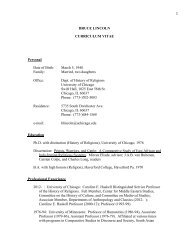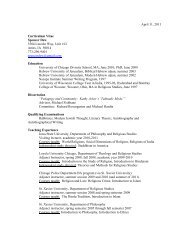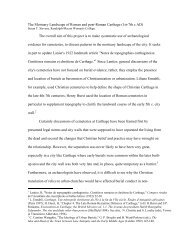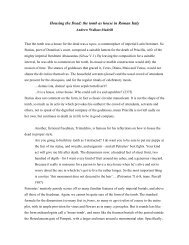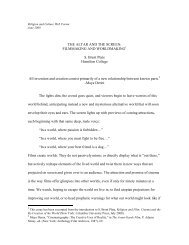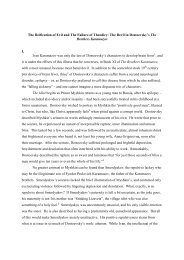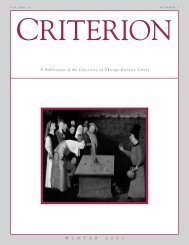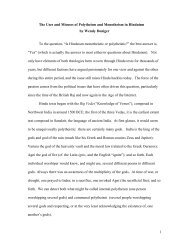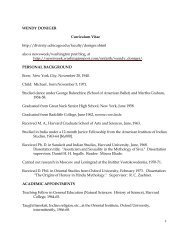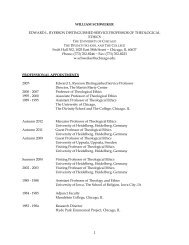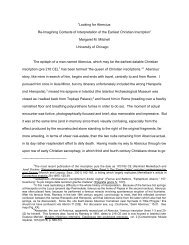Gregory Thaumaturgus - Divinity School - University of Chicago
Gregory Thaumaturgus - Divinity School - University of Chicago
Gregory Thaumaturgus - Divinity School - University of Chicago
You also want an ePaper? Increase the reach of your titles
YUMPU automatically turns print PDFs into web optimized ePapers that Google loves.
open. This physical action <strong>of</strong> marking the sign or seal <strong>of</strong> the cross on one’s body serves as a focal point in<br />
the narrative, a clear source <strong>of</strong> spiritual power that is, conveniently, a physical action that the story’s<br />
audience could easily imitate. We can perhaps imagine that while the story is being related, Nyssen building<br />
narrative tension and stirring up a palpable fear in his audience, listeners might begin crossing themselves in<br />
solidarity with the beleaguered deacon. Up to this point, it would seem that <strong>Gregory</strong> <strong>of</strong> Nyssa has<br />
succeeded in bringing his audience through a visceral experience, dragging them to the very edge <strong>of</strong> their<br />
seats.<br />
It seems an appropriate moment for us, then, to step back and consider just how this audience is<br />
also subtly invited to assess and identify with other characters in the tale.<br />
Characterization & the Reader’s Vantage Point<br />
Perhaps the most intriguing question is this: who does the work <strong>of</strong> interpreting the deacon’s actions<br />
and their significance? That is, what types <strong>of</strong> direct and indirect characterization does <strong>Gregory</strong> <strong>of</strong> Nyssa use<br />
to guide his audience through the story? How much interpretive range are readers really granted? For one<br />
answer, let’s turn to the final piece <strong>of</strong> our episode, the demon’s pronouncement as the deacon leaves the<br />
bathhouse. The demon himself performs a direct characterization <strong>of</strong> the deacon and <strong>of</strong> the Wonderworker<br />
in this speech. He points out that the deacon should not attribute the miraculous events to himself but<br />
instead to <strong>Gregory</strong> <strong>Thaumaturgus</strong>, specifically to that figure’s powerful prayer. It seems significant that in<br />
order to make this point, the demon cried out for the first time in a human voice, interacting with the<br />
deacon through the sense <strong>of</strong> hearing and taking on a less supernatural, perhaps less terrifying, way <strong>of</strong><br />
communicating key information. He delivered a warning against unwarranted pride: “But since [the deacon]<br />
thought that everything had yielded to himself, it is said that the demon cried out to him with a human voice<br />
not to attribute to himself that power through which he had escaped destructions; for the voice <strong>of</strong> the one<br />
who had commended him to the protector had granted him the impassibility.” 25<br />
<strong>Gregory</strong> <strong>of</strong> Nyssa uses the<br />
25 VGT 93, Migne 952



